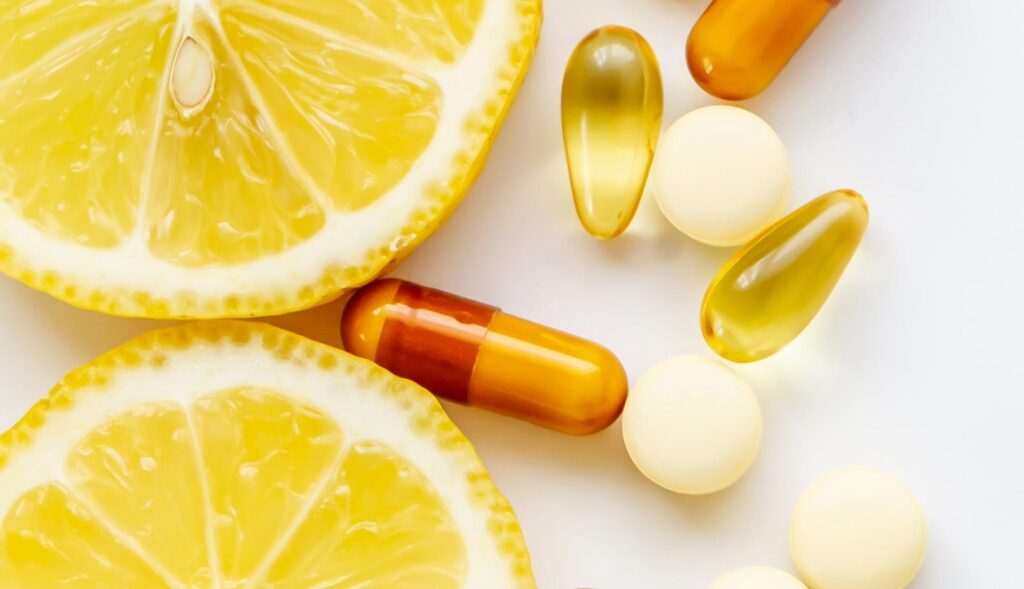Six months into practising medicine Dr David Brownstein had a revelation: Conventional medicine and the medication used to treat patients was not an effective model.
He came to realise there was a better way to manage the root cause of diseases commonly seen in people in the modern world, through holistic medicine.
What is the definition of holistic medicine?
‘The definition of holistic medicine is an approach to treatment which looks at the whole person, not just the body or its symptoms. It looks beyond the symptoms, seeking out and treating the root cause of the condition, and all potential lifestyle factors influencing the body’s response.
The holistic approach to healing understands the body is intricately connected via its many systems and takes into account, body, mind and emotions, resulting in overall better health and wellbeing.’
Working with a holistic treatment approach became Dr Brownstein’s passion, he became a world leader, lecturing to physicians around the world about his success using natural hormones and nutritional therapies in his practice.
Dr David Brownstein’s journey from conventional to holistic medicine
David’s story from conventional to holistic medicine resonates with a lot of people, not just doctors. David joined a medical practice after graduating from Medical School consulting with patients the way he was taught. The average consultation was five minutes long ending with the patient leaving with a prescription to treat symptoms.
One day David met with a chiropractor, Dr Robert Radtke, who handed him a book, “Healing with Nutrition” by Jonathan Wright. The chapter on cardiovascular disease struck a chord for David. His father had been battling with heart issues since having his first heart attack at the age of forty. After reading the chapter twice, David asked his dad to visit him at his practice the next day to run some blood tests.
At this point David’s father was not well at all; he had very little energy and his skin was pale and grey. David took two blood tests he had never been done before as part of the management of his father’s cardiovascular disease: a full thyroid panel to measure all thyroid hormone levels and testosterone levels
Results showed David’s father’s thyroid levels were in the lower part of the reference range and his testosterone was below detectable limits. At this point, he was taking twelve different medications to manage his cholesterol, hypertension, chest pain and diabetes. Based on the blood test results David put him on natural desiccated thyroid hormone and topical natural testosterone.
Within a week of the new natural treatment plan David’s father was feeling better and for the first time in a long time, experienced no chest pain. Over the next three weeks he started looking and feeling better and doing things around the house again. When David retested his father’s blood, he found his cholesterol levels had dropped significantly.
From managing disease to treating disease and improving health
After the successful results with his father, David knew he needed to make a career change. He left his practice and started reading and attending conferences to educate himself. He began focusing on the hormonal system and restoring balance in his patients. He pulled out his biochemistry textbook and learned how to optimise human physiology and biochemistry instead of using drugs that degraded enzymes and blocked receptors.
When referring to his medical school training David said:
You never learn about health. You don’t learn what health is, how to optimise it, or even how to just help it improve. You’re learning pathology and how to manage diseases.
Now David is having a lot more fun at work figuring out the root cause of his patients’ issues and developing effective treatment plans for them not involving drugs with potential side effects. He tells people they don’t have a deficiency of statin drugs or antihypertensive drugs in their system. Their problem more likely stems from a magnesium deficiency or a thyroid hormone deficiency.
Treating the root cause of common conditions with holistic medicine
Thyroid disorders
Iodine is a single nutrient that helps more people. It’s inexpensive, every cell in the body needs it, and it helps so many different biochemical and physiologic pathways.
The thyroid gland is located in the lower part of the neck, weighing approximately 1.5 ounces and producing a teaspoon of thyroid hormone a year. This small amount of thyroid hormone has to interact with every single one of the trillions of cells in your body, twenty-four hours per day, every day. In order to enjoy optimal health an adequate supply of thyroid hormone is absolutely essential.
A thyroid test panel consists of three things: TSH (thyroid-stimulating hormone), T4 (inactive thyroid hormone) and T3 (active thyroid hormone). Originally conventional doctors were taught only to test TSH, T4 has since been added to routine testing. In order to get a better representation of the health and function of the thyroid, it makes sense to test all three hormones.
To receive the benefits of thyroid hormone treatment, test levels do not need to be below the recommended reference range.
David says:
When you put people on thyroid hormone for low thyroid, they feel better, their arthritis gets better, their brain gets better, they find it easier to lose weight, their hair gets better. Many things get better since the thyroid affects every single cell in the body.
To truly address the underlying problem of low levels of thyroid hormone, it is important to look at cofactors used in making thyroid hormones. Magnesium, selenium and iodine all have an important role to play, with iodine the most significant.
Thyroid hormone cannot be made without this crucial nutrient. When David started using the correct form of iodine supplementation he found he was prescribing thyroid hormone for his patients far less frequently. A lugol solution – a combination of iodide and iodine – has proven to be the most effective form of supplementation in supporting thyroid gland function.
Interestingly, iodine is needed to make all hormones in the body. Adrenal hormones, ovarian hormones, testicular hormones, and pituitary hormones all require an adequate supply of iodine to be made. Over the last forty years, iodine levels have fallen by over 50%.
Apart from our soils being deficient in iodine being a cause for low iodine levels in the body, having too much bromide and/or fluoride in the body can push iodine out of the body. Bromide binds to iodine receptors in place of the iodine, and fluoride poisons multiple enzymes. The end result is a multitude of diseases not common in our predecessors.
Hypertension
Only a very small percentage of people develop high blood pressure in response to salt, in fact, after giving people salt, patients have been able to come off their hypertension medication.
For decades we have been told to lower salt intake to prevent and manage hypertension. Doctors are taught to tell their patients to stop eating sodium chloride (salt) in their diet to lower the sodium level in their blood.
When you look at the biochemical pathways in the body responsible for manufacturing ATP, the body’s source of energy, they rely on sodium and chloride. Sodium is also used to usher iodine into the thyroid gland. When David learned of these pathways, he found the majority of his patients had low levels of both sodium and chloride. When they added unrefined salt to their daily intake, they started feeling better.
When sodium levels in the body are too low, hormonal responses in the kidneys are triggered. Aldosterone, renin and angiotensin are released in an attempt to hold on to salt. They cause the blood vessels to constrict which increases blood pressure. Restricting salt in someone who has hypertension is counter-productive. It will make it worse. Antihypertensive drugs block aldosterone, renin and angiotensin, and pull sodium out of the body, causing dehydration.
If you have normal kidney function, there is no need to restrict intake of salt, in fact, David says your body can handle about 100g per day, though you are unlikely to be able to consume such an amount.
It is important to note, there are people who do need to limit salt intakes such as those with kidney failure or heart failure. If you are interested, you can learn more about it in David’s book: “Salt Your Way To Health”.
The difference between refined and unrefined salt:
- Refined salt is pure white due to bleaching and is very fine
- Unrefined salt is thicker and has a colour to it due to its complementary minerals
Cholesterol
Cholesterol is needed by every cell in the body. It makes no sense physiologically or biochemically to limit the amount of cholesterol in the body. It is not a long-term solution.
It is common for people with low thyroid hormone levels to have high cholesterol levels. Taking thyroid hormone can help reduce cholesterol levels. That is what David knows now. At medical school in the 1990s, new doctors were taught the lower the cholesterol level the better, and the best way to achieve this is with statin drugs.
Statins work by poisoning an enzyme called HMG-CoA reductase. Downstream from this important enzyme is the production of the hormones testosterone, progesterone, oestrogen and DHEA. When HMG-CoA reductase is not allowed to function normally, your cholesterol levels may drop, and so do your hormone levels.
When you clean up your diet, get your hormonal system balanced and do a little exercise, you will find this works more effectively than drugs to reduce your cholesterol levels.
Education is key to embracing holistic medicine
Dr David Brownstein has written sixteen books. He is inspired to educate people on why natural therapies should be considered even though they are not mainstream.
In the thirty years, David has been practising holistic medicine, he has found patients with the best results – are the most educated patients. The patients who do their own research and engage in a dialogue with him about their health and their treatment options have a better understanding of the theory behind therapies. Better results come from working together.
Good health outcomes don’t have to come from a prescription pad used only to prescribe medication. The best outcomes are a result of a thorough investigation to establish the underlying cause of the problem. In David’s experience, a thyroid hormone deficiency can explain a multitude of health issues, including high cholesterol levels and cardiovascular disease.
When natural hormones and appropriate nutritional supplements are combined with healthy lifestyle practices, the body’s biochemical pathways start functioning optimally. When hormones are balanced, the need for medication is reduced. Holistic medicine focuses on optimising the physiology and biochemistry of the human body, rather than poisoning enzymes and blocking receptors.
We recommend reading David’s books. They are accessible to everyone, easy to understand and extremely informative. He covers everything from iodine deficiency and thyroid problems, to statins and healthy eating. He is well-informed and shares his knowledge to enable you to make better, more informed decisions about your health.
***
Contributor: Dr David Brownstein
Dr David Brownstein, a world leader in holistic medicine. David is a board-certified family physician who utilises the best conventional and alternative therapies. He is the medical director of the Centre for Holistic Medicine in West Bloomfield, Michigan in the United States. He’s lectured internationally to physicians and others about his success with using natural hormones and nutritional therapies in his practice. He’s written 16 books, all of which are very accessible to patients.
Original Article Source: David Brownstein – Thyroid, Iodine, Viruses & More





